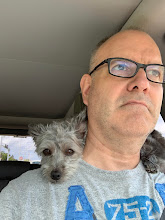OK, so I'm a forgetful person. I will walk into a room, knowing I was going in search of something but can't remember what I was going in after. Very frustrating to me and others.
My wife Beth was going through some journal entries I was making while I was a Cadet in training over 20 years ago. One field training Sunday back then, I was scheduled to preach. The way it worked back then was that I was assigned months in advance. I was to submit, one at a time, a proposal for a Bible passage, a Bible Study, a short sermon outline, an extended (I used to day distended) outline, and a manuscript. After several weeks expired and trees suffered from the paper usage, I was ready (or so I thought) to stand up in the pulpit with my manuscript. To make matters worse, the field training officer (who was and is still a very nice person) was sitting in the back of the congregation with a grading sheet and the manuscript, giving a grade and constructive criticism on my sermon delivery.
I traveled with my brigade to the location, a two-hour drive away. For whatever reason,I didn't have my manuscript with me. No notes, no outline, no sermon. The adrenaline was flowing as I tried to conceal my oversight from the training officer. I had a few minutes alone before the meeting, and took a blank sheet of paper. I folded it in half sideways so that it would fit in my Bible. From what I remembered of my sermon, I wrote a bullet-point outline in two columns, one on each side of the fold.
When I got in the pulpit, I was nervous, but I felt strangely free. I was able to step away from the pulpit, look people in the eye or take a small side trip that seemed appropriate at the moment.
That Sunday morning began what for me has been a regular system for sermon delivery:
- I prepare my sermon in much the same way, except I don't create an extended outline or manuscript.
- I take a piece of graph paper (I like the horizontal and vertical lines for lining things up), fold it in half, and write on the open side of the paper.
- I write only a simple outline - bullet points and subpoints. Any crucial points or quotes I will write out word for word. I may also write the words to a prayer chorus on the page. There are usually no mre than 200 words on the page.
- I write the notes by hand so that my memory can better recall my thoughts from a glance at the image of my own handwriting. Printing it on the computer doesn't have the same effect.
- I fold the page and stick it in my Bible right where the preaching passage is.
- During the meeting, a thought might come up, or an illustration that ties into what someone else says. I will open the sermon up and jot down that thought where I think it will best fit in.
- I open my Bible, put the notes next to the Scripture, and I am ready to go.
So my encouraging advice to you is to wean yourself from the manuscript. And I know you'll be a better preacher.
| Like what you are reading? Consider the following: 1. Subscribe to my blog (there is a link for that on this page). 2. "Follow" me on twitter. It's a free account, and a great way to meet like-minded friends. My link is: http://twitter.com/tommccomb. 3. Leave a comment (I love your candid feedback and might use your ideas in future posts) 4. Tell someone else about this blog. Thanks for reading, and I hope to see you soon. |




